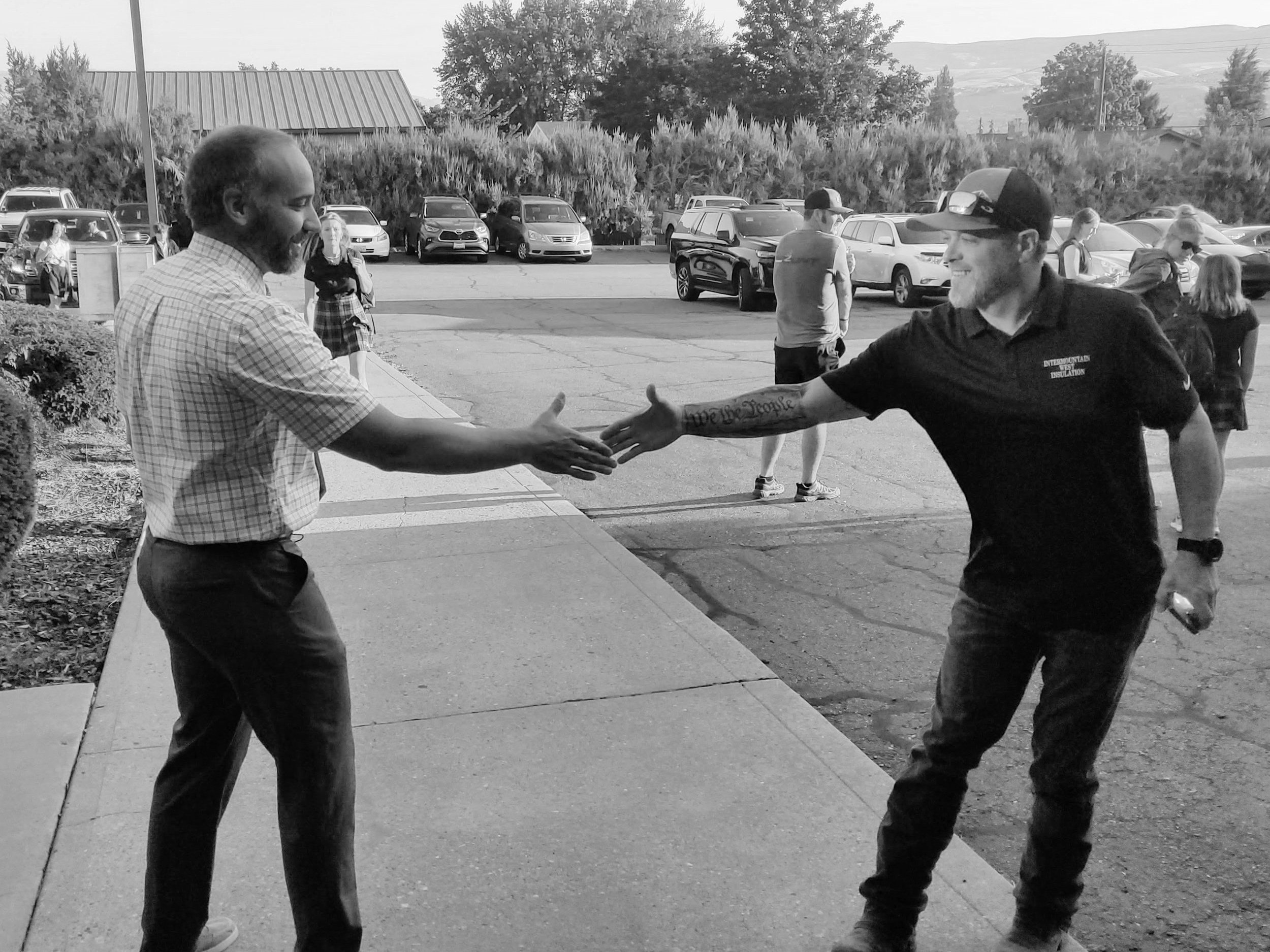In ancient Greece, the education of a young citizen was more than a transfer of knowledge—it was the cultivation of a soul. The Greeks called this process paideia, a term that encompassed the holistic formation of an individual’s intellectual, moral, and spiritual virtues. It was not enough to train the mind in logic or the body in athleticism. To the Greeks, a true education turned a student’s entire being toward the pursuit of what is good, true, and beautiful. Centuries later, this same vision of education lies at the core of our mission as a school, where paideia informs both how and why we teach.
Now we come to the classical and Christian foundation of paideia, where education is understood as the shaping of both intellect and character. Dr. Martin Luther King Jr. once said, “The function of education is to teach one to think intensively and to think critically. Intelligence plus character—that is the goal of true education.” Education is about more than grades and tests and papers. We teach them how to think rather than what to think. We give them challenging scenarios through the books that they read, discussed in safe, Christ-centered classrooms so that they can prayerfully sharpen their minds and hearts. And we hope that you read the books with your children, discuss them at the dinner table, and wrestle with it all: the true, the good, the beautiful, and the hard. This transformative approach aligns perfectly with our school’s purpose: to partner with parents in raising the next generation of Christian leaders, equipped to shape culture through faithful, wise, and joyful Christian living.
At its heart, paideia is the formation of the whole person. Plato, in The Republic, likens education to turning the soul toward the light, orienting it to what is true and just. Aristotle complements this in Nicomachean Ethics, where he emphasizes the role of education in habituating virtue—shaping not only what a student knows, but how they live. These classical insights reach their pinnacle in the biblical vision of paideia, and Paul exhorts Christians to raise children “in the discipline and instruction of the Lord” (ESV, Ephesians 6.4). It is this vision that guides our school’s curriculum and culture, grounded in the conviction that all education is ultimately formation.
In the classroom, paideia comes to life through our classical approach. Students do more than memorize facts or acquire skills—they engage with the great ideas of history, wrestling with enduring questions: What does it mean to live well? How do we discern truth? How do we glorify God in all things? When reading Beowulf, for instance, they examine its thrilling battles not as ends in themselves, but as avenues to explore courage, self-sacrifice, and the fleeting nature of earthly glory. When Beowulf prepares for his final battle, he reflects with humility, “I have wrested the hilt from the enemies’ hands, avenged the evil / done to the Danes; it is for this that I thank God / as I die” (2794–2796). These words invite students to consider themes of gratitude and reliance on God, anchoring their academic journey in eternal truths.
While our classical roots provide intellectual depth, our Christian faith gives paideia its ultimate purpose. True education is not neutral—it shapes students in the way they should go. Our teachers model what it means to love God with their minds, fostering an environment where faith and learning are beautifully intertwined. Whether contemplating Plato’s allegory of the cave, solving a complex equation, or crafting an artistic masterpiece, students see how every pursuit points back to God’s truth and glory.
Equally integral to paideia is its relational dimension. Education is deeply communal. At our school, teachers are more than instructors—they are mentors who walk alongside students, modeling wisdom, grace, and perseverance. As Mortimer Adler observes, “The ultimate end of education is happiness or a good human life, a life enriched by the possession of every kind of good, by the enjoyment of every type of satisfaction.” This flourishing is cultivated not in isolation, but within a community of mutual encouragement and accountability. Relationships matter; our students thrive because they feel known, loved, and challenged to grow.
This relational focus extends beyond the classroom, shaping the joyful culture of our school. Our community reflects the fruit of paideia in the laughter of students at play, the prayers shared in assemblies, and the acts of kindness exchanged daily. Joy, central to our core values, is not a mere byproduct of education—it is its rightful result, rooted in the knowledge that we belong to Christ and His Kingdom.
Through the lens of paideia, education becomes more than preparation for college or careers. It becomes the shaping of souls for faithful service. Like the Greeks who sought to cultivate virtue in their youth, and like Paul who discipled Timothy, we aim to equip students to engage the world with wisdom and grace. Their journey is not just academic—it is deeply formative, preparing them to shape culture and glorify God in all they do.
At our school, we embrace the sacred calling of education. Guided by paideia, we endeavor not only to teach but to form, trusting that God will use our efforts to equip the next generation of leaders for His purposes.





